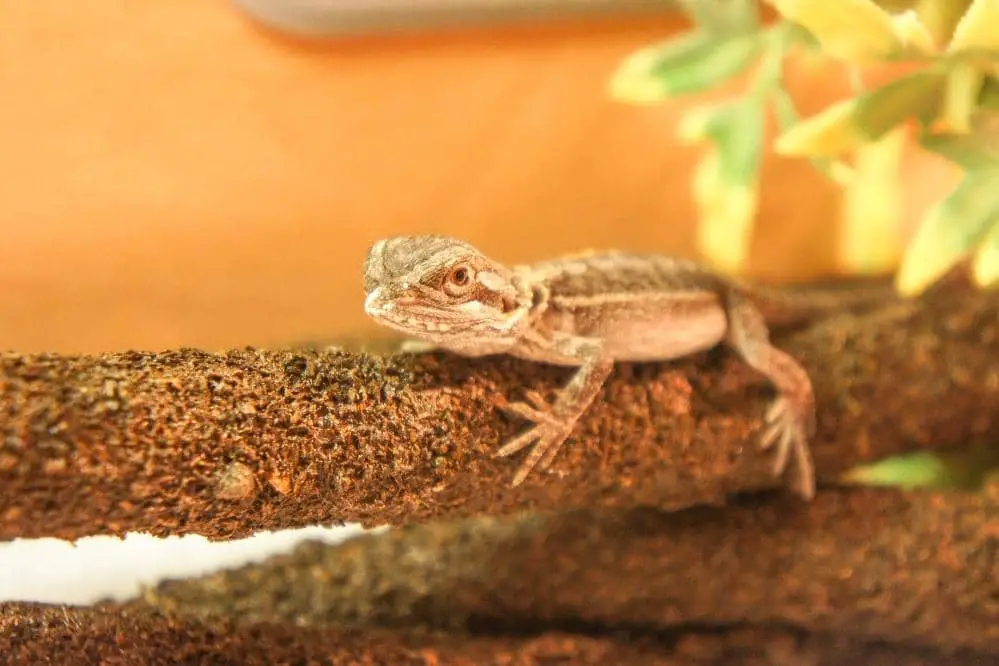Like humans, bearded dragons are diurnal, which means they sleep after the sunset and perform their routine life activities during the daytime. So don’t be surprised if you find your bearded dragon sleeping for many hours continuously.
When it comes to baby bearded dragons, “YES” baby bearded dragons sleep a lot more than adult beardies. If you are on this post, it means you are dealing with baby beardies for the first time and worrying about seeing your baby beardies sleeping most of the time. So keep your nerves calm; it’s perfectly normal. We’ve talked about why baby bearded dragons sleep so much, below. However, let’s first have a brief look at “how much generally do baby bearded dragons sleep?”
How Much Generally Baby Bearded Dragons Sleep?
Generally, an adult bearded dragon needs 8-10 hours of sleep, and baby beardies need 2-3 hours more sleep. They are diurnal, so they need to sleep during the night hours. When considering what hours they should sleep, you can select any 12-hour duration that suits you (like 8 pm to 8 am, 9 pm to 9 am, etc.) The crucial thing is to follow the routine strictly and not change the timing often.
Reasons Why Baby Bearded Dragons Sleep Too Much
Baby bearded dragons (or even adult beardies) generally sleep more for multiple reasons. The majorities of the motives are harmless and part of natural behavior; however, some issues may require your immediate attention.
Rapid Growth
The most frequent and natural cause of “why baby bearded dragons sleep a lot?” is that they are growing rapidly. Long and comfortable sleep is necessary to ensure their proper growth and health. Baby beardies generally grow rapidly (at a rate of 2 inches per month) and achieve 90% of adult length within the first 12 months of their life. So to ensure your baby beardie gains optimum growth, when he is asleep, keep the lights off, and don’t make noise, so that their sleep is not disrupted. It’s also imperative to strictly follow the already settled routine and not change the sleeping schedule.
Migration / Relocation Stress
Stress due to any reason can make your baby bearded dragon sleep more than usual. Most stress cases can be managed by calming your beardie down and making simple adjustments. However, the stress of being in a new environment affects adult and baby bearded dragons both and generally lasts longer. Baby bearded dragons can take 2-3 weeks to get accustomed to new surroundings and recover from relocation stress.
Constipation / Impaction
Another important but less common reason that can make your baby bearded dragon sleep more is impaction or constipation. Impaction is caused by eating too much or a fat-rich diet. Generally, a healthy beardie poop 3-4 times daily; however, your beardie will be considered constipated if he is not pooping even once daily. An impacted bearded dragon has restlessness and stomach pain, so he doesn’t like to move much. You can help your beardie poop by doing belly massage gently, giving a warm bath, and feeding some laxatives. If these things don’t work, you should take advice from a vet.
Low Temperature & Low UVB
Like all cold-blooded animals, bearded dragons are active only when the temperature is on the higher side, and they slow down as the temperature begins to fall. Especially baby bearded dragons are more sensitive to any change in temperature. Also, remember that baby beardies’ standard temperature requirements are a few degrees higher than adult beardies. So if the temperature remains too low for a long duration, the bearded dragons can be forced to brumation.
Similarly, in the wild, bearded dragons have evolved to require higher levels of UVB rays to sustain themselves. So if you are not providing enough UVB, your beardie can become weak and lazy.
Dehydration
A dehydrated bearded dragon tends to be lazy and sleep more. Baby bearded dragons (mainly 0-3 months of age) can get dehydrated quickly because they can’t drink enough water at once due to their small bodies. You can help them avoid dehydration by feeding them moist food (like fruits, vegetables, etc.), placing a shallow water dish in the cabin, and giving them baths more often.
Other Reasons
- If you don’t find any of the above factors, your beardie may be sleeping more because he is suffering from some disease, so you must contact your vet immediately.
- During winter, bearded dragons generally tend to sleep for long durations and eat and poop less than usual. This state is called brumation and continues for 3-4 months. However, you need to differentiate it from illness.
- If you are offering food whose particle size is too big for a beardie, it can get stuck in the digestive tract leading to impaction. That will ultimately make your beardie lazy and sleepy.

